Volunteers on the third annual Australian Geographic Society Lord Howe Island scientific expedition helped discover insect species previously unknown to science.

Wcollecting wasps, millipedes and soldier flies. But our group of keen citizen scientists on last year’s scientific expedition to Lord Howe Island turned out to also be good at collecting spiders and crustaceans.
Our scientific mentors – Drs Juanita Rodriguez and Bryan ‘The Fly Guy’ Lessard, both entomologists from the Australian National Insect Collection, a Canberra-based CSIRO facility – were nevertheless endlessly good-natured about the array of minibeasts with which we enthusiastically filled our sample tubes.
It wasn’t just small, industrious spiders or tiny freshwater prawns that split our focus. As well as collecting samples during the week-long expedition, we also counted anemonefish and sooty terns; hiked through kentia forest; swam in turquoise waters; looked for turtles at Old Settlement Beach; ate three-course meals of fresh seafood and home-grown produce; and enjoyed drinks at sundown on the lagoon as mutton birds clumsily landed before ducking into their underground nests.
Lord Howe is described by visitors with all kinds of paradise-related terminology, and rightly so. But what also struck me was the sheer abundance on the island – of birds, fish and turtles, of palms and ferns, of beaches, walks and food…an abundance of delight.
This story is from the March - April 2019 edition of Australian Geographic Magazine.
Start your 7-day Magzter GOLD free trial to access thousands of curated premium stories, and 9,000+ magazines and newspapers.
Already a subscriber ? Sign In
This story is from the March - April 2019 edition of Australian Geographic Magazine.
Start your 7-day Magzter GOLD free trial to access thousands of curated premium stories, and 9,000+ magazines and newspapers.
Already a subscriber? Sign In
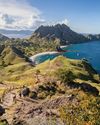
SULAWESI SENSATIONS
There are worlds within worlds and marvels untold waiting to be experienced on Indonesia's remote islands.
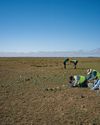
SEARCHING FOR AUSSIE DINOSAURS
Our understanding of where to find ancient life in Australia has been turned on its head by a new appreciation of the country's geology. Now the world is looking to our vast outback as the latest hotspot to locate fossils.
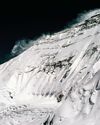
THE HARDEST NIGHT
The first Australian ascent of Mt Everest in 1984 is one of the great feats of mountaineering. Climbed by a small team semi-alpine style, with no bottled oxygen, via the Great (Norton) Couloir, it remains unrepeated 40 years later.
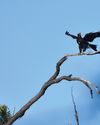
WEDGE-TAILED WONDER
The chance discovery of an eagle nest leads to an extended vigil observing normally hidden behaviours of one of nature's supreme winged marvels.
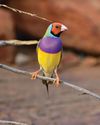
BURDENED BY BEAUTY
Northern Australia's Gouldian finch survives in huge numbers in cages around the world, but its wild population continues to struggle.
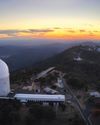
A TELESCOPE FOR A GOLDEN AGE
After a stellar 50 years as one of the country's major scientific assets, the AAT continues to play a major role in keeping Australian astronomy on the world stage.
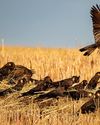
COCKY WHISPERING AT COOMALLO CREEK
This patch of remnant bush on the edge of the West Australian wheatbelt is a place loved by one of Australia's rarest bird species and the man who has studied the site for more than 50 years.

A PIONEERING PAIR
Louisa Atkinson and her mother, Charlotte, were among Australia's earliest authors, and pioneers in women's rights.
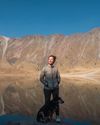
THE LONGEST WALK
Lucy Barnard is walking from Argentina to Alaska -the length of the Americas - on an extraordinary journey of endurance and adventure.
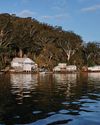
SECLUDED, BUT NOT ALONE
In an era of heightened social isolation, where many of us lead lonely lives, Dangar Island offers the chance to be part of a supportive, connected community.